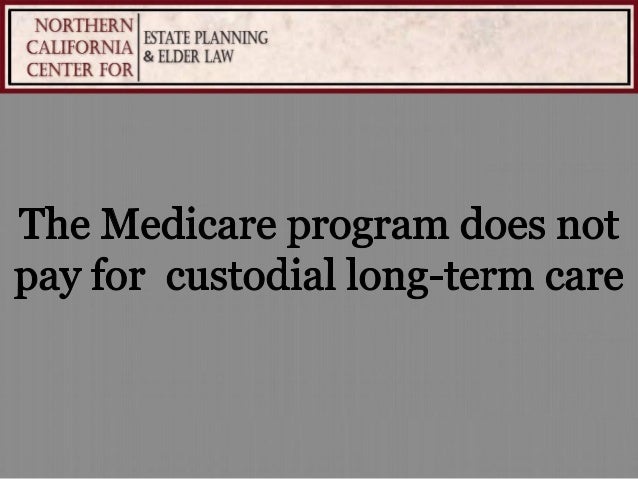Table of Content
Pre-qualification is a good way to know if you meet minimum requirements to secure a mortgage. It’s a vital indicator, especially for first time homebuyers who need to improve their credit status. The next step is to reach out to our team of top-notch mortgage lenders and get started on securing yourself the perfect deal.

Qualification criteria for home loans vary by lender and loan type. Our simplified and secure online mortgage application will walk you through the process step by step. Some features of the online application are not available with all loans; talk to a home mortgage consultant. The interest rate is the percentage of your loan amount we charge you to borrow money. While your lender is willing to loan you a substantial amount of money, that doesn’t mean you have to borrow the entire amount if it would put you under significant financial strain. You want to hunt for homes that are in your price range so you don’t fall in love with a house that’s simply out of reach.
Provide details to calculate your affordability
This is the actual price you'll pay, not including any closing costs. "Higher energy costs disproportionately impact households with lower incomes and depending on fuel prices, 40 per cent of households in Nova Scotia experience energy poverty." The price cap is applied to customers on a default energy tariff, whether you pay by direct debit, standard credit, prepayment meter, or have an Economy 7 meter.
Make a mortgage payment, get info on your escrow, submit an insurance claim, request a payoff quote or sign in to your account. Go to Chase home equity services to manage your home equity account. We offer a variety of mortgages for buying a new home or refinancing your existing one.
How do I use the mortgage qualifying calculator?
The way you pay for your energy, where you live, your meter type, as well as your consumption will affect your energy bill. If you don’t have enough money for a 20% down payment, there is the option of refinancing later on. This can get you a better rate if market conditions are favorable.
The calculator also allows the user to select from debt-to-income ratios between 10% to 50% in increments of 5%. If coupled with down payments less than 20%, 0.5% of PMI insurance will automatically be added to monthly housing costs because they are assumed to be calculations for conventional loans. There are no options above 50% because that is the point at which DTI exceeds risk thresholds for nearly all mortgage lenders. The mortgage qualifier calculator steps you through the process of finding out how much you can borrow.
Affordability calculator
If the down payment is causing you an issue, you might consider an FHA loan, which offers competitive rates while requiring only 3.5 percent down, even for borrowers with imperfect credit. When calculating house affordability, lenders want a precise picture of your spending ability. Since everybody's tax deductions are different, and can change after a big purchase such as a house, gross income provides a more consistent baseline when evaluating a buyer's finances. This means that banks get paid even if you default on your mortgage, and so are likely to be more flexible with their credit and down payment requirements. Note that, in order to qualify for an FHA loan, the borrower must intend to use the house as a primary residence and live in it within two months after closing.

If you're ready to connect with a trusted lender and receive exact figures, fill out this short form here and request personalized rate quotes tailored to you. This will give you a better idea of what interest rate to expect and help gauge your ability to qualify for a mortgage. By submitting a comment, you accept that CBC has the right to reproduce and publish that comment in whole or in part, in any manner CBC chooses. Please note that CBC does not endorse the opinions expressed in comments. Comments on this story are moderated according to our Submission Guidelines. The price of home heating oil and rising inflation have combined to pack a mighty punch to the pocketbook for Nova Scotians, especially those living with fixed incomes.
Monthly PI payment
Your credit score is the foundation of your finances, and it plays a critical role in determining your mortgage rate. For example, let’s say you have a credit score of 740, putting you in the running for a rate of 4.375 percent on a loan for a $400,000 property with a 20 percent down payment. If your credit score is lower — 640, for example — your rate could be higher than 6 percent. In that scenario, the monthly payment to cover the principal and interest could be $300 cheaper for the higher credit score.
You can also connect with a home mortgage consultant and have a conversation – about your home financing needs, your loan choices, and how much you may be able to borrow. When you’re ready, your home mortgage consultant will help you complete an application. If you pay off your mortgage balance within a shorter term, you may pay less in total interest than with a longer-term mortgage. A vital step in figuring out how much you’re able to spend on a home is seeking out mortgage approval. If you cannot immediately afford the house you want, below are some steps that can be taken to increase house affordability, albeit with time and due diligence. In general, home-buyers should use lower percentages for more conservative estimates and higher percentages for more risky estimates.
Your bank or credit card company may show your score for free, but keep in mind that these estimates are often different from the FICO score a lender sees. With a $100,000 salary, you have a shot at a great home buying budget — likely in the high-$300,000 to $400,000 range or above. You will also need a strong credit score, low debts, and a decent down payment. That means your mortgage payment should be a maximum of $1,120 (28 percent of $4,000), and your other debts should add up to no more than $1,440 each month (36 percent of $4,000).
Another $100,000 earner who has two car payments, a big student loan balance, and a big family may spend only 25% on housing. If your annual salary is $100,000, the 30% rule means you should spend around $2,500 per month on your house payment. With a 10% down payment and a 6% fixed interest rate, you could likely afford a home worth around $350,000 to $400,000 . Many personal finance experts recommend spending around 30% of your monthly income on housing costs.
The cap ensures that the profit energy suppliers make is capped. The energy price cap sets a maximum price that energy suppliers can charge consumers for each kilowatt hour of energy they use. If you are struggling with energy costs, there's practical advice and information on what you can do and support services in our Help With Bills guide. Insurance companies have to cover eight at-home COVID-19 tests per person on the plan per month, either through reimbursement or by offering it at no cost through direct coverage. Take into account other monthly expenses such as utilities and groceries.
Even if you apply for a conventional loan that doesn’t have income limits, your home’s value cannot exceed a certain amount of money — known as conforming loan limits. Not only does your salary affect how much you can borrow in a mortgage, it also impacts the types of loans you can take out. Now, let’s look at an example of a homebuyer who makes $100,000 per year but has a lower credit score and relatively high debts. This buyer might qualify for an interest rate of 5.75 percent. For a payment of about $2,495, this buyer can buy a house listed at $450,000.
Although having minimal funds for a down payment reduces how much much home you can afford, do not let that limit your options or prevent you from buying a home. You can use our How Much Home Can I Afford Calculator to determine what price home you can buy based on different down payment amounts. This is another factor lenders use to assess what size loan you can afford.


No comments:
Post a Comment